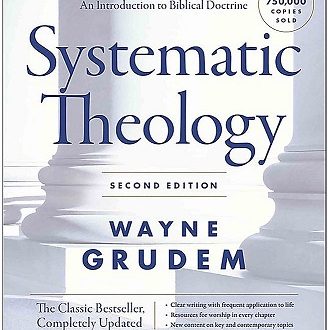 Today is graduation day at Boyce College, and I will be delivering a commencement speech during the ceremony. The full text of my address is below.
Today is graduation day at Boyce College, and I will be delivering a commencement speech during the ceremony. The full text of my address is below.
Graduate from Boyce, not from the Bible
1 Thessalonians 2:13
2009 Commencement Address
INTRODUCTION
Good morning and greetings to parents, friends, family, faculty, staff, most of all graduates. Today is a great day.
Parents, today is a day to be proud of your child for the successful completion of a rigorous undergraduate course. Spouses, today is day of celebration for the close of a season of sacrifices for the sake of education and for the dawn of a new day in your home and in your family’s ministry. Faculty, today is a day for gratefulness that you get to see the fruit of your labors as these your students commence and go into the Lord’s harvest. Graduates, today is a day of forward-looking hope in a God who has great deeds in store for you after you leave this place. Today you graduate from Boyce and move on to your assignment from the Lord.
For all of you graduates, today is a day of both leaving behind and of moving forward, of graduating and commencing. And this we do in fact celebrate. Nevertheless, while we celebrate this graduation, there are some things from which we your teachers are praying that you will never graduate. An infant may “graduate” as it were from baby food, but he must never “graduate” from food lest he perish. Likewise, you may be graduating from your studies at Boyce College, but you must never graduate from your studies lest you perish. What do I mean by that? I mean this. You have completed Boyce College’s rigorous course of study of the Bible and its application to ministry. But you must never finish your course of study of the Bible and its application to ministry, or you and your ministry will perish.
The founder of Southern Seminary and the namesake of Boyce College, James P. Boyce, once said this: “We hold the education of the ministry a matter of the first importance to the churches of Christ.” He said this not because he thought the churches were in need of academicians, but because he believed as Jesus believed that “man does not live on bread alone but on every word that proceeds from the mouth of God” (Matthew 4:4). In other words, he believed that the churches of Christ were dependent upon their ministers to be Bible-saturated heralds of the gospel. Absent such ministers, people and preachers perish.
As you commence today into God’s field, I have a charge for you. I want you to graduate from Boyce College, but not from the Bible.
When you leave this place for whatever field of ministry that God will give to you, you are going to find people who will pressure you to graduate from the Bible. They won’t say it in so many words, but they will nevertheless communicate that you need to graduate from the Bible. Their message will be this:
“You won’t be able to grow this church if you preach expository sermons from the Bible. You can’t reach modern people if you rely on that old book. You can’t counsel parishioners who are having really big problems in their marriages and their families if you lean on that Word alone.” You may not hear the objections in so many words, but they will come nonetheless.
At the bottom of all of these objections is the deep belief (though often an unconscious one) that the Word of God is not sufficient for your life and ministry.
Yet when the apostle Paul faced the churches that he founded, we see an entirely different reality. His ministry was one based entirely on the sufficiency of the word of God to save and to sanctify sinners. In his first letter to the church in Thessalonica, Paul rejoices that the faithful testimony of his converts has sounded forth to all the world (1 Thes 1:8). That church’s faithfulness to Christ was so profound and so deep, that they even suffered persecution for the sake of the gospel (1 Thes 1:14). And Paul says that the church’s faithfulness was measured solely by their response to and perseverance in “the word of God”:
1 Thessalonians 2:13 “And for this reason we also constantly thank God that when you received from us the word of God’s message, you accepted it not as the word of men, but for what it really is, the word of God, which also performs its work in you who believe.”
We can mark at least four characteristics of this “word” that Paul preached and that became the basis of his successful ministry in Thessalonica.
I.    It was a Gospel Word
No less than three times, Paul says that the word he preached to them was the “gospel” (vv. 1:5; 2:2, 4, 8, 9).
1:5 “Our gospel did not come to you in word only, but also in power and in the Holy Spirit and with full conviction.”
2:9 “We proclaimed to you the gospel of God.”
What is this gospel he speaks of? You can read it in Acts 17.
Acts 17:2-3 “2 And according to Paul’s custom, he went to them, and for three Sabbaths reasoned with them from the Scriptures, 3 explaining and giving evidence that the Christ had to suffer and rise again from the dead, and saying, ‘This Jesus whom I am proclaiming to you is the Christ.'”
From this text, we can say at least two things about Paul’s gospel.
(1) His gospel was rooted in a book. Paul reasoned with these people “from the Scriptures,” which is a reference to the Old Testament—meaning that Paul’s gospel was grounded in the written revelation of God.
(2) His gospel was proclaimed as a story about Jesus. The story has one main character performing in two acts: the God-Man, Jesus Christ, crucified and raised for sinners. In 1 Thessalonians 1:10, Paul says that Christ is the man whom God, “raised from the dead, that is Jesus, who delivers us from the wrath to come.” Thus the deepest meaning of this story and the reason that it is called “good news” is that Christ’s story saves sinners.
And this is precisely where the world and your flesh will tempt you. They will tempt you to believe that this story and this book are not sufficient for your ministry. They will say, “It’s not the gospel you preach that will draw them in, it’s the clever methods you employ that will build your ministry.” You must reject this temptation at all costs. If you are to stay faithful to the gospel, you must stay rooted in this written word. Without it, your message and your ministry will go up in a cinder at the judgment.
II.    It was a Divine Word
Twice in one verse, Paul traces the Thessalonians’ faith to a revelation from God. In the first instance, he calls it “the word of God’s message,” and in the second “the word of God.” This is important, because the word’s sufficiency to save them is tied directly to its divine origin. Paul is very clear, “You accepted it not as the word of men, but for what it really is, the word of God.”
In other words, to accept this gospel message as anything less than the very word of God is to entirely miss the point. The only way to accept this word faithfully is to believe that God Himself is speaking in this word.
Here again, the tempters will enjoin you to leave this truth behind as well. They will say that your commitment to inerrancy is outmoded in the post-modern world. You must avoid this temptation at all costs. This is a Divine word.
III.    It was a Converting Word
It was precisely because of the power of this gospel word that the Thessalonians were ever saved. In verse 13, Paul says they had “received” and “accepted” the word. Paul preached this gospel rooted in this book, and it broke down strongholds of unbelief and sin and rebellion, and people were saved. The message of this God-Man crucified and raised for sinners saved these sinners.
We often associate this kind of “gospel preaching” with conversion. And that is good. God does in fact awaken faith in dead hearts through the proclamation of this word. Yet Paul says that this gospel rooted in this book goes much further than that because it also is a sustaining word.
IV.    It was a Sustaining Word
Listen to the last phrase. The text says that God’s word “also performs its work in you who believe.” In other words, this gospel word is not something that you graduate from and leave behind after you become a Christian. If you are a Christian, this gospel word “performs its work in you who believe.” Meaning this: The gospel word that saves you is the same word that sustains you. For the Thessalonians in verse 14, this word is what enabled them to persevere in faithfulness to Christ even when they were being persecuted.
If you ever graduate from this word, you will have left behind the only thing sufficient to sustain your life and ministry. To leave this is to leave everything.
But to hold fast to this word is to have everything. For you will find here ten thousand portions of gospel grist to sustain you through the severest of trials.
CONCLUSION
Graduates, when you leave this place, I want you strong and faithful as you go into God’s field. Don’t be blown about by the cultural winds that are blowing against God and His purposes for your life. Be strong in this word and in this truth, and you will find yourself bearing fruit (as our Lord says), “fruit that will last.”
If there is a legacy for Boyce College in your life, let it be this. That here was the place that you learned that you never graduate from the Word of God. It is your life, your sustenance, and your sacred obligation to proclaim. And to that end, know that we are praying for you. God bless you all.




2 Comments
Jan D.
Dr. Burk,
Congratulations on completing your first year as the Dean of Boyce College! Boyce is truly blessed to be under your leadership.
Your vision, scholarship, and love for the students will reap benefits not only in this life, but also in eternity as these students go forth in their called ministries. Thank you and God Bless You!
Denny Burk
Thanks, Jan. Your encouragement means a lot to me.